This content is for informational and educational purposes only. Always consult a qualified healthcare provider.
Last Updated on January 18, 2024 by Grace Oluchi
Social media has become an basic part of our lives, where we share our experiences, connect with friends and family, and explore new ideas. Platforms like Facebook, Twitter, Instagram, and Snapchat have stirred up the way we communicate with each other.
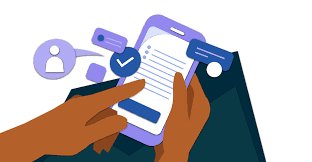

However, the lavish use of it can have a negative impact on our mental health. This article tours the impact of social media on mental health, ways to use it in a healthy way, and the benefits of taking a break.
📋 Table of Contents
The impact of social media on mental health:
Social media can have a keen impact on our mental health. Studies have shown that lavish use of it can lead to anxiety, depression, low self-esteem, and poor sleep quality. Social media creates a culture of comparison, where individuals constantly compare their lives with others, leading to feelings of wants and low self-worth. Social media also exposes individuals to cyberbullying, which can lead to anxiety and depression.
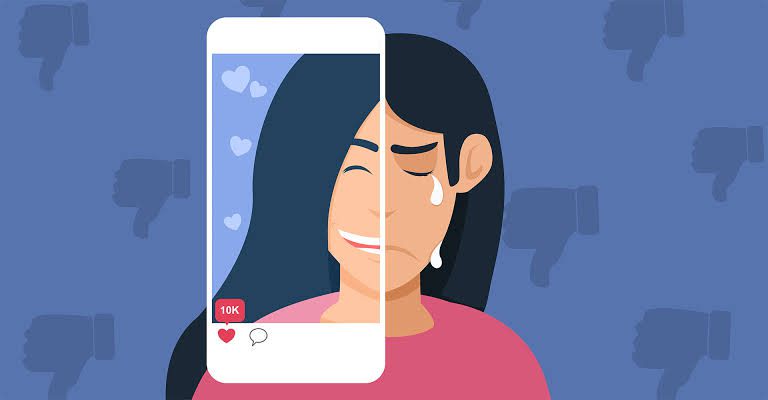

However, it can also have a positive impact on mental health. Social media can provide a sense of community, where individuals can connect with others who share similar interests and experiences. It also provides a space for individuals to express themselves, which can be healing.
Ways to use social media in a healthy way:
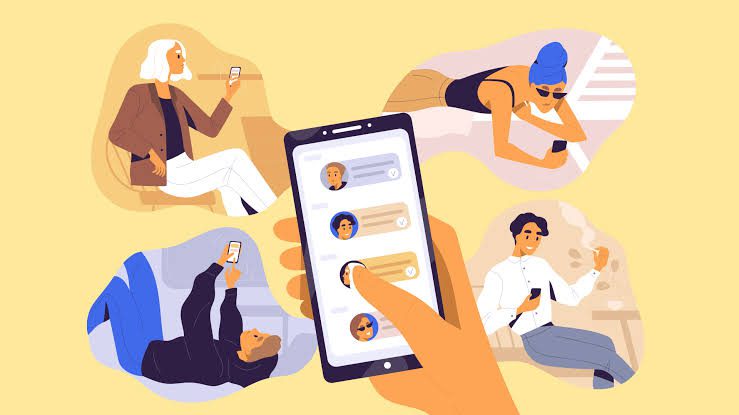

While social media can have a negative impact on mental health, there are ways to use it in a healthy way. Here are some tips to use it in a healthy way:
- Set time limits: Limit the amount of time you spend on social media each day. Set a timer to remind you when it’s time to log off.
- Unfollow negative accounts: Unfollow accounts that make you feel bad about yourself or differently impact your mental health.
- Limit your news intake: Limit the amount of news content you consume on social media. News can be overwhelming and differently impact your mental health.
- Don’t compare yourself: Don’t compare your life to others on social media. Remember that it only shows a highlight reel of someone’s life.
- Follow positive accounts: Follow accounts that inspire and prompt you. Positive content can improve your mood and mental health.
- Take breaks: Take regular breaks from social media to recharge and avoid burnout.
- Don’t post when emotional: Avoid posting when you’re emotional or upset. Take time to process your emotions before sharing them on the space.
- Limit notifications: Limit the number of notifications you receive from social media. Notifications can be distracting and differently impact your mental health.
- Use social media for good: Use it to connect with others, spread positivity, and inspire change.
Benefits of taking a social media break:
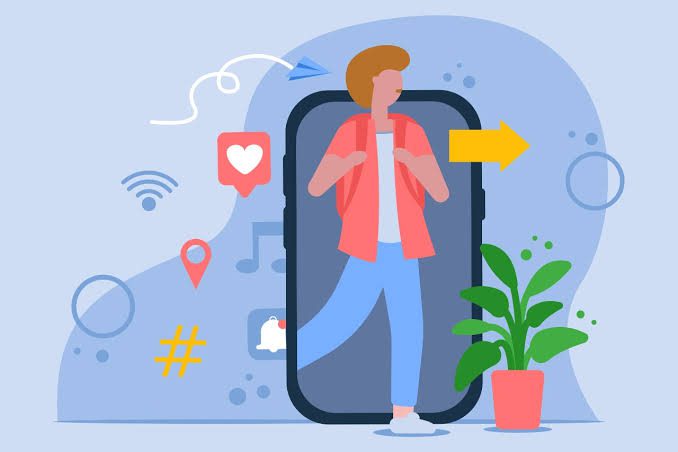

Taking a social media break can have numerous benefits for mental health. Here are some benefits of taking a break:
- Improved mental health: Taking a break from SM can improve your mental health by reducing stress, anxiety, and depression.
- Increased productivity: Taking a break from SM can increase productivity by reducing distractions and improving focus.
- Improved sleep: Taking a break from SM can improve sleep quality by reducing exposure to blue light and reducing stress.
- Improved relationships: Taking a break from SM can improve relationships by increasing face-to-face interactions and reducing distractions.
- Increased self-awareness: Taking a break from SM can increase self-awareness by reducing wants and increasing self-reflection.
20 things to do instead of using social media:
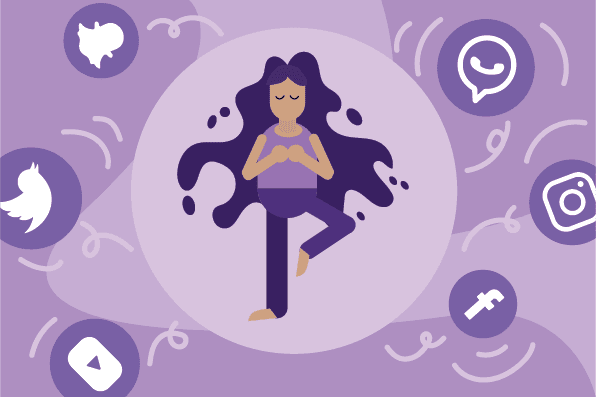

You May Also Read
- Benefits of regular physical activity on mental health.
- The effects of stress on the body and how to manage it
- Safeguarding Your Mental Health and Wellness in 2024.
- Weight Loss: Healthy Snacks for Weight Loss.
- Sleep Your Way to Better Health: Understanding the Importance
Here are some ideas for things to do instead of using SM:
- Read a book: Reading can also improve mental health by reducing stress and increasing cognitive function.
- Exercise: Exercise can improve mental health by reducing stress, anxiety, and depression.
- Meditate: Meditation can improve mental health by reducing stress, anxiety, and depression.
- Take a walk: Walking can improve mental health by reducing stress and increasing physical activity.
- Spend time in nature: Spending time in nature can improve mental health by reducing stress and increasing relaxation.
- Write in a journal: Writing can improve mental health by reducing stress and increasing self-reflection.
- Cook a meal: Cooking can improve mental health by reducing stress and increasing creativity.
- Play a game: Playing a game can improve mental health by reducing stress and increasing cognitive function.
- Learn a new skill: Learning a new skill can improve mental health by increasing self-esteem and confidence.
- Listen to music: Listening to music can improve mental health by reducing stress and increasing relaxation.
- Spend time with friends and family: Spending time with loved ones can improve mental health by reducing stress and increasing social support.
- Create art: Creating art can improve mental health by reducing stress and increasing creativity.
- Volunteer: Volunteering can improve mental health by increasing social support and improving self-esteem.
- Take a class: Taking a class can improve mental health by increasing self-esteem and confidence.
- Practice yoga: Practicing yoga can improve mental health by reducing stress and increasing relaxation.
- Play with a pet: Playing with a pet can improve mental health by reducing stress and increasing social support.
- Practice gratitude: Practicing gratitude can improve mental health by reducing stress and increasing positivity.
- Take a nap: Taking a nap can improve mental health by reducing stress and improving sleep quality.
- Clean and organize: Cleaning and organizing can improve mental health by reducing stress and increasing productivity.
- Take a bath: Taking a bath can improve mental health by reducing stress and increasing relaxation.
The Key Takeaway.
Social media has become an integral part of our lives, but excessive use can have a negative impact on mental health. However, there are ways to use it in a healthy way and taking a social media break can have numerous benefits for mental health. By following these tips and engaging in healthy activities, we can improve our mental health and well-being.
What are some tips for creating a strong password?
Creating a strong password can help protect your social media accounts from being hacked. Tips for creating a strong password include using a combination of letters, numbers, and symbols, avoiding personal information, and using different passwords for different accounts.
How can I protect my privacy on social media?
To protect your privacy on social media, you can adjust your privacy settings to control who can see your posts and personal information. You can also limit the amount of personal information you share, be cautious when accepting friend requests from strangers, and avoid clicking on suspicious links or downloading unknown files.
What should I do if I'm being cyberbullied?
If you’re being cyberbullied, it’s important to save evidence of the bullying, block the person who is bullying you, and report the bullying to the platform. You can also talk to a trusted friend or family member for support.
How do I know if an online offer or message is a scam?
Online scams can be difficult to spot, but some warning signs include unsolicited messages from strangers, messages that ask for personal information or money, and messages that sound too good to be true. If you’re unsure whether an offer or message is a scam, you can do research or contact the platform for assistance.
How can I be a responsible social media user?
To be a responsible social media user, you can avoid spreading false information, be respectful of others, and think before you post. You can also report any violations of the platform’s terms of service or community guidelines.

